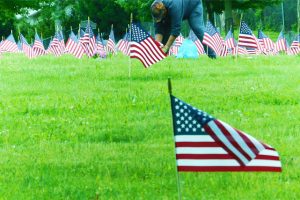Grudges are a waste of perfect happiness.
Laugh. Apologize. Let go of what you can’t change.
– George Carlin
Around the world, cultures observe the passage from October to November as Halloween, Samhain, the Day of the Dead, All Saints Day and other celebrations of unseen energies. These days also prepare for the holiday season and all that can be left behind in the new year.
Grudge comes from the now dead Middle English word “grutch,” which meant “to complain or grumble.” Vocabulary adds this bit of humor, “You know Grandpa’s been holding a grudge against the neighbors for years, but you have to wonder: How long can he hold that shotgun?”
In “Why We Hold Grudges, and How to Let Them Go,” Psychology Today, reminds, “It’s not about the person who wronged you. It’s about who you want to be.”
In “The Mental Health Effects of Holding a Grudge,” Very Well Mind reported, “Holding a grudge is when you harbor anger, bitterness, resentment, or other negative feelings long after someone has done something to hurt you.” The article mentions how the social life can suffer and lists grudge-holding physical problems, like,
- Cardiovascular
- Digestion
- Reproduction
- Sleep
- The immune system
To release grudges,
- Recognize resentments
- Understand why they’re being held
- See the situation from the other person’s point of view
- Insist on becoming bigger and better than the situation
- Stop judging, especially yourself
- Read More
In the meantime, take the Grudges That Became Great Feuds quiz below. And
Succeed and Soar!
Why hold a grudge?
Click here to view. [5 minutes]
Grudges That Became Great Feuds
Match families to their issues. Answers below.
| Brooks-McFarland | From 1865 to 1869 in Bell County, Texas, caused by lingering, Civil War resentments. |
| Early-Hasley | A West Virginia flare-up that lasted 30 years. Began because families chose different sides in the Civil War and/or the belief that a hog had been stolen. |
| Earp-Clanton | Four Corners, Texas from 1867 to 1871, provoked when a Confederate soldier came home and found it occupied by the “Union League,” which was protecting blacks and Union sympathizers. |
| Hatfield-McCoy | This feud eventually involved the Texas Rangers, Texas State Police. It killing began March 25, 1868 during an arrest for horse theft and ended by January, 1877. |
| Horrell-Higgins | In northwest Louisiana’s Claiborne Parish in the early 1890s, at least a dozen dead by gunfire. Most from ambush. |
| Lee-Peacock | Lampasas County, Texas, 1873. Began during attempted arrest of men carrying firearms [recently outlawed by state governor]. |
| Lincoln County Feud | From 1878 to 1890. Began as a vendetta between two, prominent West Virginia families that became a bitter war between local timber barons and businessmen |
| Ramsey-Tuggle | Began with the historic Gunfight at the O.K. Corral in Tombstone, Arizona, October 26, 1881. At that time, Arizona was a U.S. Territory and folks had to check their guns upon entering town. |
| Reese-Townsend | Between 1896 and 1902, in the Creek Nation of the old Indian Territory (now Oklahoma). It began with a botched holdup which was to originally include members of the other family. |
| Sutton-Taylor | Also called the Colorado County Feud, it ran from 1898 to 1907 and was caused by dissatisfaction with results from a local political race |
 SkyScapes Journals
SkyScapes Journals
Record your dreams, hopes, plans and achievements in these beautiful, inspiring notebooks.
Details:
- 6” x 8, spiral notebook
- 120 pages, ruled on both sides
- Art printed on front
- Cover is thick paper stock. Back cover is medium gray
- Inside front and back covers have pockets for storing extra paper and pens
Thanks for shopping!
Quiz Answers
| Early-Hasley | From 1865 to 1869 in Bell County, Texas, caused by lingering, Civil War resentments. |
| Hatfield-McCoy | A West Virginia flare-up that lasted 30 years. Began because families chose different sides in the Civil War and/or the belief that a hog had been stolen. |
| Lee-Peacock | Four Corners, Texas from 1867 to 1871, provoked when a Confederate soldier came home and found it occupied by the “Union League,” which was protecting blacks and Union sympathizers. |
| Sutton-Taylor | This feud eventually involved the Texas Rangers, Texas State Police. It killing began March 25, 1868 during an arrest for horse theft and ended by January, 1877. |
| Ramsey-Tuggle | In northwest Louisiana’s Claiborne Parish in the early 1890s, at least a dozen dead by gunfire. Most from ambush. |
| Horrell-Higgins | Lampasas County, Texas, 1873. Began during attempted arrest of men carrying firearms [recently outlawed by state governor]. |
| Lincoln County Feud | From 1878 to 1890. Began as a vendetta between two, prominent West Virginia families that became a bitter war between local timber barons and businessmen |
| Earp-Clanton | Began with the historic Gunfight at the O.K. Corral in Tombstone, Arizona, October 26, 1881. At that time, Arizona was a U.S. Territory and folks had to check their guns upon entering town. |
| Brooks-McFarland | Between 1896 and 1902, in the Creek Nation of the old Indian Territory (now Oklahoma). It began with a botched holdup which was to originally include members of the other family. |
| Reese-Townsend | Also called the Colorado County Feud, it ran from 1898 to 1907 and was caused by dissatisfaction with results from a local political race |






